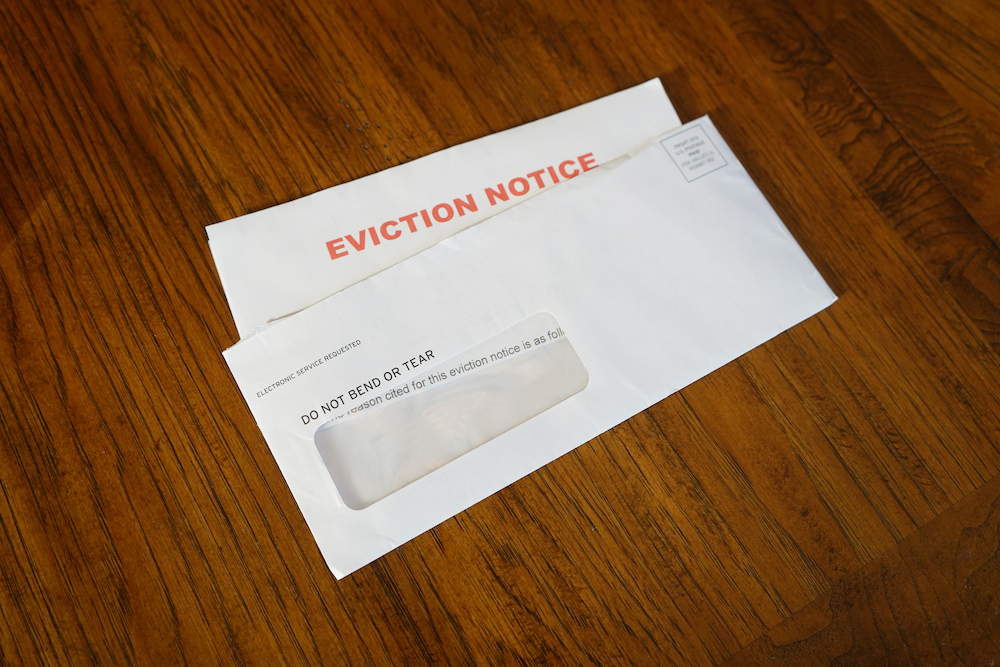
by Kim Pidgeon | Nov 15, 2023 | News
Report shows increase in all types of empty homes since the pandemic
The number of long-term empty homes has increased nationally by nearly 10 per cent since 2018, according to a new report commissioned by the Local Government Association (LGA) and the Empty Homes Network.
The increase – of nearly 60,000 homes since 2018 – is the equivalent of just over one per cent of the country’s housing stock.
The findings, which come at a time of critical housing need, reveal that the numbers across all definitions, types and tenures of empty homes have risen steadily since the pandemic and have largely exceeded the figures seen in 2018.
More than one million properties across England in 2022 were unoccupied, 4.01 per cent of all dwellings.
The rise comes despite the introduction of an empty homes premium in 2013, aimed at encouraging owners to bring empty properties back into use.
The report states many of the empty homes are yet to have reached a stage of deterioration that prompts concern or encourages decline but every empty home removes a property from the housing market.
The rise comes amid the wider background of frozen Local Housing Allowance (LHA) rates, the rising cost of living, the closure of Afghan bridging hotels, wider asylum and resettlement pressures, and an insufficient supply of affordable housing – all driving increases in homelessness and reducing councils’ ability to source suitable accommodation.
The data shows there are currently more than one million people on council housing waiting lists and 104,000 households living in temporary accommodation.
Councillor Darren Rodwell, housing spokesperson for the LGA said: “At a time when we face a chronic housing shortage across the country it is wrong for so many homes to be left empty.
“Councils work hard to address the issue, but the existing measures are clearly falling short. This report, and the best practice proposals and recommendations within it, aim to support councils in their efforts to reduce the numbers of empty homes, increase housing supply, encourage inward investment, and provide a better quality of life for residents and neighbours affected by the issues empty homes cause.
“Councils share a collective national ambition to tackle local housing challenges. The Government should also support this ambition by using the Autumn Statement to implement our six-point action plan so that councils can resume their historic role as a major builder of affordable homes.”
Adam Cliff, secretary and policy lead for the Empty Homes Network, said: “Empty Homes are a hugely wasted resource, and at over one million empty homes nationally, this figure represents the equivalent to the number of total dwellings in the city of Manchester.
“At a time where the demand for housing is so high, working to bring empty homes back into use can not only support meeting this need, but can encourage inward investment, improve communities and enhance the lives of those who currently live near empty homes.
“This report aims to set a standard from which councils can build a solid foundation to deal with empty homes, and provides practical and evidence based ideas which will undoubtedly prove useful to councils and their officers.
“While the numbers across all empty homes categories have shown an increase over the past five years, the report aims to address this by equipping councils and officers with tools to assist in data cleansing, case progression and the overarching empty homes journey through the case progression flowchart.”
Empty homes are divided into five categories: less than six months empty, long-term empty, empty homes premium, second homes and unoccupied. By definition, an empty home is one that has no permanent occupier or can be defined as a property where the main resident lives elsewhere.
As a standard practice, empty homes that have remained unoccupied for over six months from the moment of being informed by the owner are labelled as long-term empty.
Given their category, these are the most likely to warrant concern and/or investigation by the council.

by Kim Pidgeon | Oct 30, 2023 | News
First grant of its kind after changes to the Affordable Homes Programme
Homes England has awarded a £5m grant from the Affordable Homes Programme to Somerset Council to support the North Taunton Woolaway Project.
The grant allocation is the first of its kind following Homes England’s decision in June 2023 that grant funding from the Government’s Affordable Homes Programme 2021-26 could be used to fund replacement homes, alongside new affordable homes, as part of wider estate regeneration plans.
North Taunton was identified for regeneration as it is an area with some of the county’s highest rates of social deprivation and contains some of the most energy-inefficient homes in Somerset.
The North Taunton Woolaway Project is a site comprising of non-traditional homes that were built using prefabricated reinforced concrete panels instead of traditional brick.
This type of construction is time-limited due to structural issues, therefore, demolishing these existing homes and replacing them is more beneficial. All new homes will be built to low carbon standards and will achieve EPC B or above.
In total, 162 energy-inefficient Woolaway homes will be demolished and replaced with 229 council homes for affordable rent. Homes England will be funding 66 of these new build replacement homes, with the remaining homes funded by Somerset Council.
Jackie Jacob, a director of Affordable Housing Grants said: “This funding is the first grant allocation following the introduction of our new flexibilities to support our partners plans for estate regeneration. The Agency’s new Strategic Plan objectives will support Somerset Council in its ambitions to regenerate North Taunton, an area with some of the highest social deprivation levels in the county.
“The North Taunton Woolaway Project is a signal of the funding open to affordable housing providers to accelerate the regeneration of social housing and help level up communities across the country.
“We encourage all providers and local authorities to come and talk to us as early as possible if they need support to develop their proposals – we’re here to help.”
The regeneration project will be rolled out across four phases, two of which will be part-funded by the Affordable Homes Programme to deliver 100 homes, including a variety of bungalows, flats and houses. The agency’s goal is that that this funding will enable the council to accelerate the delivery of phases three and four.

by Kim Pidgeon | Oct 13, 2023 | News
Aim of partnership is to re-engage residents before homes are lost
Sovereign Network Group (SNG) is working with housing and homelessness charity Shelter on a new initiative to prevent avoidable evictions due to ‘non-engagement’ in social housing.
Shelter will support customers to re-engage with the housing provider with the aim of reducing avoidable evictions.
The partnership follows the publication of a 2021 Shelter report which cited ‘non-engagement’ as one of the leading cause of evictions from social housing.
The initiative, which when trialled in Devon proved so successful with more than 75% of people re-engaging, is now being rolled out across the South and South West of England.
As a result, SNG will be able to refer customers who live in these areas, and who choose not to engage, to Shelter.
As an independent, Shelter will work with both housing provider and tenant to build a positive relationship and support customers to re-engage. It will also help to resolve any disputes and ensure that both parties understand their rights and responsibilities.
While the specific strategies used by Shelter will vary depending on the local context and the needs of the customer involved, they will actively reach out to customers who have been hard to contact to make them aware of the full range of support available from the housing provider. This includes help finding employment, debt advice and details of grants which may be available.
Advisers will make contact using a variety of channels such as phone calls, emails, letters, and in-some cases home visits. Once referred, customers will have access to further resources including financial counselling and housing advice.
SNG say the goal of the new partnership is to create an environment where customers feel comfortable reengaging, leading to improved living conditions, increased tenant satisfaction, and ultimately, more stable tenancies.
Jon Cox, head of tenancy sustainment at SNG said: “We recognise that sometimes no matter how hard and sensitively we try customers may feel overwhelmed and unable to communicate with us when tenancy issues arise.
“As one of the first initiatives of its kind in the sector, this partnership will support our customers to live well and sustain their tenancy when they otherwise may not be able to.”
Stuart Francis-Dubois, strategic lead at Shelter said: “We’re delighted to announce our partnership with SNG, aimed at providing invaluable support to some of their tenants during their times of need.
“By offering free, independent legal advice, we want to help people navigate their housing challenges and ultimately preventing evictions. Together, we are committed to making a positive difference in the lives of SNG’s tenants.”
SNG is funding the partnership over a two-year period and expects to support approximately 150 people in the first year. Subject to this year one performance, SNG will then look at rolling out the service to other areas.
New figures released from the government reveal £1.7 billion has been spent by local councils on temporary accommodation for homeless households in England in between April 2022 and March 2023 – a 9% increase in spending from the year before and a 62% increase in the last five years.
One third of the total was spent on emergency B&Bs and hostels.

by Kim Pidgeon | Sep 29, 2023 | News
The government updates its approach to how the UK will meet net zero by 2050
The chief executive of the National Housing Federation has written an open letter urging the government to recommit to their net zero manifesto pledge in the upcoming Autumn Statement.
It follows the Prime Minister’s decision to revise targets on the UK’s path to reaching net zero.
Announcing the changes, Rishi Sunak, vowed to take “a pragmatic, proportionate and realistic” path to reach net zero by 2050, reducing costs on British families while still meeting international commitments.
A summary of the revised plans states the Government will:
- Move back the ban on the sale of new petrol and diesel cars by five years, so all sales of new cars from 2035 will be zero emission. This will enable families to wait to take advantage of falling prices over the coming decade if they wish to.
- Delay the ban on installing oil and LPG boilers, and new coal heating, for off-gas-grid homes to 2035, instead of phasing them out from 2026. Many of these homes are not suitable for heat pumps, so this ensures homeowners are not having to spend around £10-15,000 on upgrading their homes in just three years’ time.
- Set an exemption to the phase out of fossil fuel boilers, including gas, in 2035, so that households who will most struggle to make the switch to heat pumps or other low-carbon alternatives won’t have to do so. This is expected to cover about a fifth of homes, including off-gas-grid homes – those that will need expensive retrofitting or a very large electricity connection.
- Scrap policies to force landlords to upgrade the energy efficiency of their properties, but instead continue to encourage households to do so where they can.
- Raise the Boiler Upgrade Grant by 50% to £7,500 to help households who want to replace their gas boilers with a low-carbon alternative like a heat pump.
- Rule out policy ideas that would require people to share cars, eat less meat and dairy, be taxed to discourage their flying, or have seven bins to hit recycling targets – removing worrying proposals that would interfere in the way people live their lives.
The letter from the National Housing Federation was addressed to both the Chancellor, Jeremy Hunt and the Secretary of State for the Department for Energy Security and Net Zero, Claire Countinho:
Dear Chancellor/Secretary of State
RE: Social Housing Decarbonisation Fund and minimum energy efficiency standards
On behalf of the National Housing Federation and our housing association members across England, I am writing to ask you to recommit to the full £3.8bn Social Housing Decarbonisation Fund (SHDF), as committed in the government’s manifesto, in the upcoming Autumn Statement.
We would also welcome a consultation on minimum energy efficiency standards (MEES) in the social housing sector.
Unlocking potential by releasing the full Social Housing Decarbonisation Fund
Housing associations are committed to the vital work of retrofitting their homes, not only to help the country meet its net zero targets, but also to provide energy efficient and comfortable homes for their residents that are affordable to heat.
Funding is crucial to enabling the housing association sector to lead the transition to net zero. The sector plans to invest £70bn by 2050 in the fabric, heating systems and components of their existing homes. However, analysis from Savills estimates that decarbonising all existing housing association homes will require at least an additional £36bn of investment, in addition to the £70bn already planned. This figure is likely to be even higher now as a result of inflation across the supply chain.
The SHDF provides a strong start to filling that gap and we have been very pleased to work closely with your officials on the design of the scheme. We strongly welcomed the £778m awarded earlier this year as part of Wave 2.1 of the SHDF and would like to see Wave 3 come forward imminently to enable social housing providers to continue the good work they are doing to decarbonise their properties.
We would also like to see a long-term commitment to decarbonising our housing stock, by securing the full remaining SHDF beyond 2025 from the £6bn allocated in the November 2022 Autumn Statement. This would unlock supply chains and provide the regulatory certainty for housing associations to plan, contract for and deliver the large-scale retrofit projects required to meet net zero by 2050.
The need for a clear regulatory roadmap for energy efficiency
Many housing associations are already working towards EPC C by 2030, with 69.8% of housing association homes at EPC A – C. A clear regulatory roadmap for energy efficiency standards would help further this work. We would therefore welcome a consultation on minimum energy efficiency standards (MEES) in the social housing sector. Any legislative targets proposed will need to be aligned with housing associations’ current decarbonisation strategies and matched with adequate levels of funding to ensure social housing providers have the resources to meet any new obligations.
A reformed EPC metric would also help to ensure the right retrofit measures are incentivised, facilitating a ‘no regrets’ approach to this work and aligning MEES with the approach followed by government funding programmes such as the SHDF, as well as government’s 2050 net zero target. It would also help to inform residents of all homes of the social and financial benefits that decarbonising their homes will have for them and prepare them for the changes that will be needed on the journey to net zero.
Collectively, the recommitment to the full Social Housing Decarbonisation Fund and a clear regulatory roadmap for minimum energy efficiency standards would provide the certainty the social housing sector needs to deliver the retrofit and decarbonisation required to meet the country’s net zero target. This is why we are calling on you to make these commitments in the upcoming Autumn Statement.
Yours sincerely,
Kate Henderson
Chief Executive
National Housing Federation

by Kim Pidgeon | Sep 10, 2023 | News
The housing associations join forces to become 81,000-home HA
The proposed merger between Sovereign Housing Association and Network Homes has been approved by the boards of both social housing providers.
The two housing associations have formally agreed to form Sovereign Network Group (SNG), with the merger due to take place on 1 October 2023.
Network Homes owns and manages over 21,000 homes predominantly in London and Hertfordshire, while Sovereign have almost 60,000 homes covering Berkshire, Hampshire, Oxfordshire, Gloucestershire, Dorset, Devon, Wiltshire, the West of England and the Isle of Wight.
Together, as SNG, they will be one of the largest housing associations in the country serving over 210,000 residents across London and the south of England.
Sovereign chief executive, Mark Washer, will become CEO of SNG, and Network Homes chief executive, Helen Evans, will become SNG’s Deputy CEO.
Washer commented: “Bringing these two great organisations together will enable us to invest in creating more homes, and better homes for our current and future customers. Combined, we will be a leader in delivering sustainable and affordable housing, including for social rent, as well as investment in communities.
“We are already seeing the potential for our complementary skills and experience to help us deliver better for each of our customers, and the future is hugely exciting.”
The proposed merger, which was first announced in March 2023, now has board-approval from both HAs following due diligence, tenant consultation and engagement activities with colleagues.
Helen Evans said: “I’m pleased we now have the green light to pursue this exciting new chapter for both organisations as we join together as one organisation.
“As deputy chief executive, I will be overseeing the transition and significant work is now underway to ensure we will have the right structures, systems, and processes to deliver for customers from 1 October onwards. I’m looking forward to working with Mark, our new Executive Board and colleagues in ensuring the new organisation is a success.”
SNG plans to invest around £8.5 billion in existing and new homes over the next ten years, with an annual development programme of up to 2,500 homes a year alongside a retrofit strategy.
The new organisation will establish a new community foundation which will invest £100m over ten years to directly support residents and communities. It will also adopt Sovereign’s Homes and Place sustainability and wellbeing standard that was co-created with customers.
Network Homes (renamed Sovereign Network Homes) will initially join as a subsidiary of SNG before a transfer of engagements which is expected to take place in April 2025.




